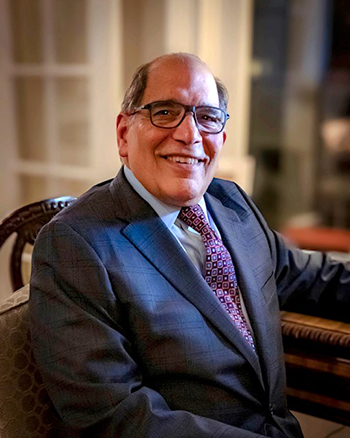What is an advance directive?
Family Health
St. Joseph’s/Candler ethicist and long-time physician explains this very important document everyone should consider having
Life is full of hard decisions. None may be as important as making choices regarding our healthcare, especially in the face of serious illness.
That’s when an advance directive can help.
An advance directive is a document stating your choices about medical treatment, such as being placed on a ventilator or needing weekly dialysis, explains Dr. Anthony Costrini, St. Joseph’s/Candler ethicist and long-time Savannah physician. Dr. Costrini recently received the Hero in Healthcare Ethics award from the Emory Healthcare Ethics Consortium.

Dr. Costrini is a strong proponent of adults having an advance directive or at least thinking about it. In his 50 years of critical care medicine, he saw too many patients who had no one to make decisions for them or disagreements amongst family when the time came to make difficult decisions.
“I know it’s tough. No one wants to think about giving up control of their decisions or thoughts of dying,” Dr. Costrini says. “But sometimes these difficult questions are easier to address before they come up.”
Start with a simple question: Who do you trust to be your surrogate, or the one honoring your wishes and making healthcare choices for you if you can’t? It could be your spouse, a sibling, a close friend or anyone you trust.
Then, start having conversations with your surrogate about your healthcare wishes, as well as your physician. You can get guidance from the Georgia Advance Directive for Health Care form (download here) or the Five Wishes document, which also is honored in Georgia. (Learn more and download here)
In Georgia, you do not need a lawyer involved or the document to be notarized, unless you wish. In South Carolina, your advance directive may need to be notarized. (Visit www.caringinfo.com for more information.)
But keep in mind, an advance directive is not written in stone. It’s OK to change your mind, Dr. Costrini says.
At St. Joseph’s/Candler, when you come to the hospital you or a loved one will fill out admission paperwork. One of the questions we ask is if you have an advance directive. If you do, we ask for a copy of it so we can include it in your medical records. If you do not have one, we ask if you’d like to speak to somebody about advance directives.
It’s the physician’s responsibility to be aware of your advance directive and talk to you and your surrogate about it, as well as all the pros and cons regarding your circumstance.
“We want to discuss whether doing everything is always the best thing because in many cases doing everything is not the best thing,” Dr. Costrini says. “And it might not be anywhere near what the patient prefers, and that’s why an advance directive is so very important.”
Reminder: April 16, “death” and “taxes”, is National Healthcare Decisions Day. One sponsor is The Conversation Project ®. Visit theconversationproject.org to learn more. ( https://theconversationproject.org/)